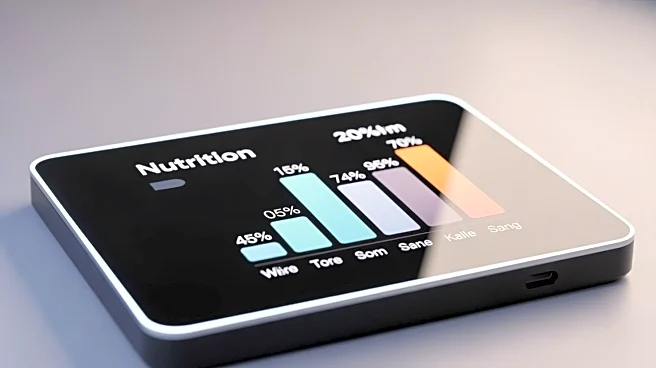What's Happening?
The Federal Communications Commission (FCC) has introduced broadband 'nutrition labels' in the United States to improve transparency regarding internet data caps. These labels require internet service providers to disclose data allowances and the consequences
of exceeding these limits. Despite these efforts, data caps continue to be a source of frustration for consumers, as they often lead to additional charges and unreliable connectivity. A recent survey highlighted that nearly two-thirds of U.S. adults paid up to $195 more for internet services in 2024, yet over half experienced connectivity issues. The FCC's initiative aims to address the fragmented disclosures that have historically left consumers uncertain about data thresholds and throttling specifics.
Why It's Important?
The implementation of broadband 'nutrition labels' by the FCC is significant as it seeks to empower consumers with clearer information about their internet plans. This move could potentially lead to more informed choices and reduce unexpected fees associated with data caps. For internet service providers, this transparency might necessitate adjustments in their pricing models and service offerings. Consumers stand to benefit from better understanding their data usage, which could lead to increased competition among providers to offer truly unlimited plans. The initiative also highlights ongoing concerns about the fairness and necessity of data caps, particularly in fixed networks where they are often seen as legacy policies rather than technical necessities.
What's Next?
As the FCC's broadband 'nutrition labels' take effect, consumers are encouraged to scrutinize the fine print of their internet plans and seek providers that offer clear data policies. Internet service providers may need to adapt their strategies to align with the new transparency requirements, potentially leading to shifts in the market. Consumers might increasingly demand plans without data caps, prompting providers to reconsider their offerings. Additionally, the FCC's initiative could spark further regulatory discussions on the necessity and fairness of data caps, especially in the context of evolving internet technologies and consumer expectations.
Beyond the Headlines
The introduction of broadband 'nutrition labels' by the FCC could have broader implications for consumer rights and industry standards. It raises ethical questions about the transparency and fairness of internet service providers' practices. As consumers become more aware of their data usage and plan specifics, there may be increased pressure on providers to offer more equitable and straightforward services. This development could also influence future regulatory measures aimed at ensuring fair competition and protecting consumer interests in the digital age.















